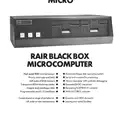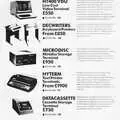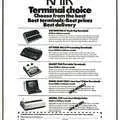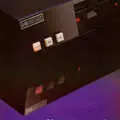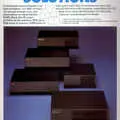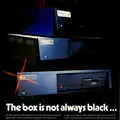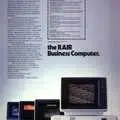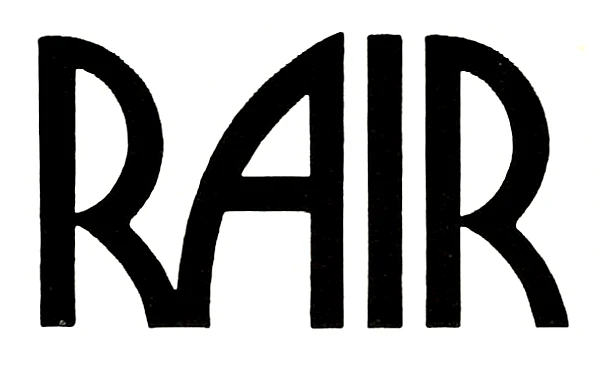
RAIR Advert - June 1983
From Practical Computing
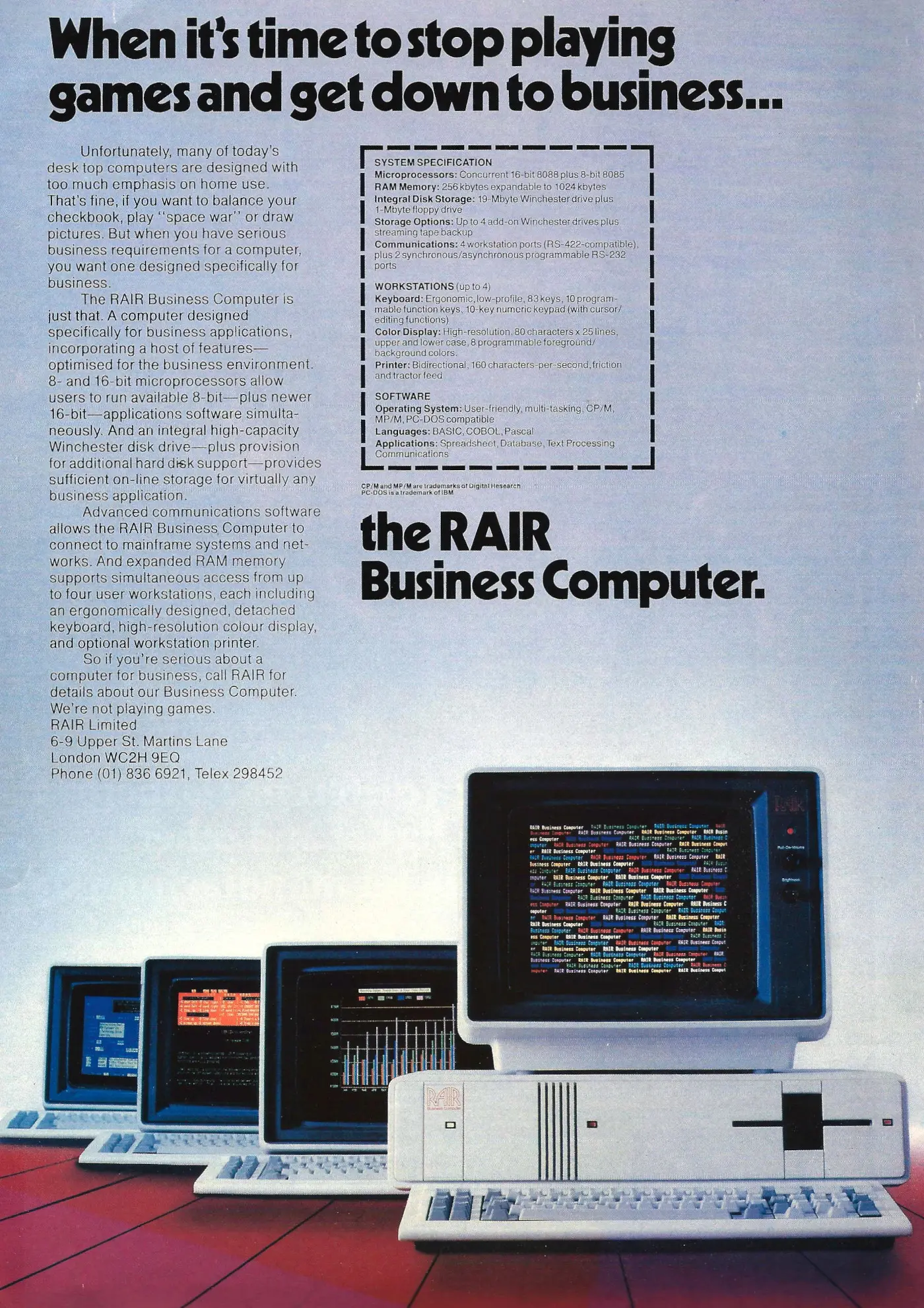
RAIR: When it's time to stop playing games and get down to business
RAIR by name and rare by nature, if the lack of information about either the machine or the company (apart from at oldcomputers.com[1]) is anything to go by.
The company did, however, appear to start out as a systems reseller, judging by news items in the press - for example, in June 1979 it was selling the DECWriter IV printer, as well as DEC's terminals, and the Hazeltine H141D terminal - available at a snip at £640, or £4,590 in 2026[2].
The tone of the advert might be a reaction against the obsession with the 8-bit home computer market, which at the time was reaching its zenith, or it could equally allude to the fact that this machine was capable of supporting up to four colour terminals attached to it, which would potentially make it a useful-enough business system.
However, some commentators questioned the merit of buying a multi-user system like this when it was often a lot cheaper to just buy the same number of single-user micros. Guy Kewney of Personal Computer World wrote of the Motorola 68000-based "Sage II" system in December 1982's issue that:
"there are a bunch of ignorant lunatics who will buy such things because they see multi-user minicomputers costing £15,000, and the multi-user micro at £8,000 looks like a bargain by comparison"[3].
It was also one of several hybrid machines which were around at the time, as it featured both a 16-bit 8088 as well as an 8-bit 8085, in an attempt to appeal to potential buyers who already had a large stash of, or who wanted to use, CP/M software, as well as the new (soon-to-be-dominant) 16-bit IBM PC format - either running MS-DOS, the CP/M update CP/M-86, or maybe the multi-user M/PM.
There's no price on the advert, but the fact that it includes a 19MB Winchester at a time when a 5MB external drive had only just broken the £1,000 barrier hints at how expensive it was likely to have been (probably around £8,000 if Guy Kewney's previous comment was anything to go by).
Elsewhere, RAIR's previous machine - the RAIR Black Box - was still doing the rounds in the guise of ICL's personal computer, to which it had licenced the internals, and the company was still helping ICL out in developing its product range.
Despite disappointment in some quarters of the press that RAIR had taken the minicomputer route, the company was still considered as a success. In August of 1983 it received an extra £1 million of development capital courtesy of Prudential Associates.
Prudential had previously raided the Coal Board Pension Fund to invest in Dragon, but now it was raiding the Merchant Navy Officers' Pension Fund[4]. This sort of thing was quite common until huge scandals like Robert Maxwell's stealing of the Mirror Group's pension[5] made it somewhat less popular, as the UK pension system became much more regulated and risk-averse[6].
Date created: 23 November 2012
Last updated: 11 December 2024
Hint: use left and right cursor keys to navigate between adverts.
Sources
Text and otherwise-uncredited photos © nosher.net 2026. Dollar/GBP conversions, where used, assume $1.50 to £1. "Now" prices are calculated dynamically using average RPI per year.
